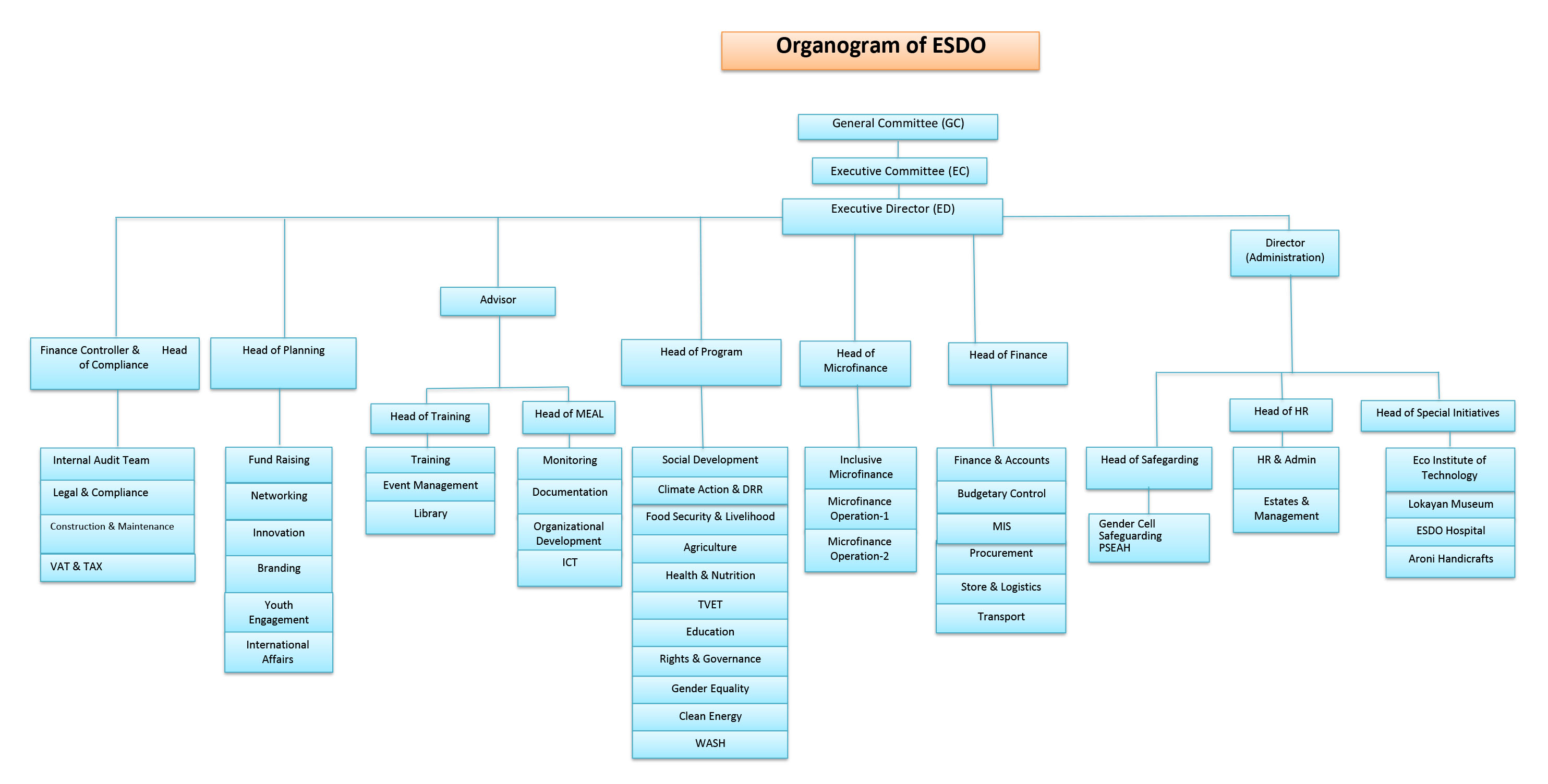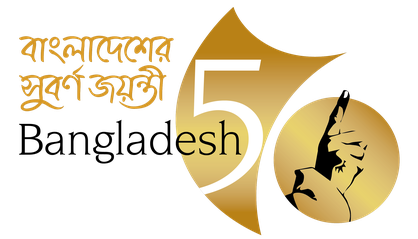
ESDO is governed by a 21-member General Committee (GC). The GC selects a seven-member Executive Committee (EC). The EC provides policy guidelines to the organization. The Member Secretary of the EC designated as Executive Director (ED) oversees the programs and activities and provides require guidance to the staff members to carry out the day-to-day activities in order to achieve individual program objectives as well as to accomplish ESDO’s mission and vision as a whole. The Executive Director monitor the program implementation, outcomes and issues through organization’s established result-based Monitoring, Evaluation and Learning (MEL) system, meetings with different levels of staff and direct visiting programme participants at fields. The progress of project implementation, outcomes and the issues emerged in the previous year are reported and discussed at Executive Committee Meeting. The EC makes decisions and provide future strategic directions to ED. The ED implements the decisions and directions of EC meeting at organization and field level through his staff. Thus, a two-way decision making and governing process (bottom to up and up to bottom) are maintained in the organization. We organize Annual General Meeting (AGM) in each financial year, where all the members of General Governing Body, Executive Committee, and key staff members attend the meeting. All the achievements, outcomes, and emerged issues of the previous year and the decisions made at the EC meeting are presented, discussed and reviewed by the AGM participants and finally approved by the GC members. Yearly budget is also reviewed at AGM and the budget for next year is approved in the AGM. Thus, a governance accountability of the organization is ensured.
The decision-making flow-chart of ESDO: General Committee ► Executive Committee ►Executive Director►Senior Management Team (SMT) ►Central Coordination Unit (CCU) ►Regional Coordination Unit (RCU) ► District Focal Team (DFT) ► Upazila Focal Team (UFT) ► Project Team (PT).


